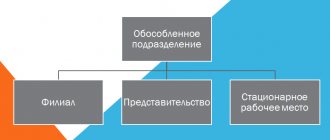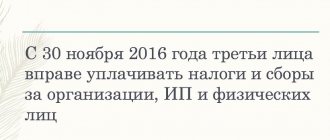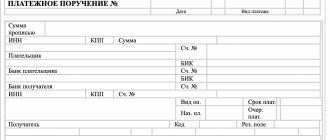The tax is already in effect
The authorities started talking about introducing such a tax back in 2017. This led to the launch of its pilot version in 2018. The jurisdiction of the law covered the Caucasus and its resorts, the Krasnodar Territory and the Altai Territory.
It was said that the pilot version of the bill would also cover Crimea, but local authorities refused this, although now, when considering the topic of how to calculate the tourist tax in 2020, it is worth taking into account Crimea, where the fee will begin to be collected from the new year.
The amount of tax payments is experimental, so it is different in each region.
The authorities of the Krasnodar region charge tourists 10 rubles per night of stay and this payment is the smallest. The Altai Territory has set the rate at 30 rubles, and in Stavropol tourists are asked to pay 50 rubles per day. The official holiday tax in Russia 2020 is 100 rubles per day, and the amount may change downward, but it cannot be more.
It is expected that the tax rate will vary depending on the location of the resort, the season and the number of tourists. In 2023, the tax amount will be revised.
Definition of military fees
In accordance with paragraph 1 of Article 1 of the Federal Law of March 28, 1998 No. 53-FZ “On Military Duty and Military Service,” the military obligation of citizens of the Russian Federation provides for:
- military registration;
- compulsory preparation for military service;
- conscription;
- completion of military service upon conscription;
- staying in reserve;
- conscription for military training and military training while in reserve.
Military training is understood as a set of activities to prepare citizens for military service, carried out in the Armed Forces of the Russian Federation, other troops, military formations and bodies (clause 3 of the “Regulations on military training”, approved by Decree of the Government of the Russian Federation dated May 29, 2006 No. 333 “ On military training and some issues of ensuring the fulfillment of military duty" (hereinafter referred to as the Regulations)).
How to calculate?
Information on how to calculate the tourist tax is relevant for those traveling to recreation areas covered by the bill. Responsibility for payment lies with state and commercial hotels, boarding houses and inns, which will be responsible for processing additional reports. The private sector, where tourists are sometimes accommodated, as well as accommodation with relatives, is not yet included in the bill, but the authorities are working on this.
The topic of how resort fees are collected is relevant, but there is nothing complicated about it. The fee is paid at the administration of the resort location chosen by the vacationer. The calculation is made based on the number of days of stay at the resort (only the first day is not taken into account), as well as the amount that is accepted as the tax rate in a particular region. The payment is paid together with the payment for the hotel or boarding house, but the receipt is issued separately, that is, the amount of the tax fee is not included in the cost of accommodation.
Important! When considering the topic of how holiday tax is deducted in Russia in 2020, it is worth paying special attention to the fact that only officially registered holiday destinations can demand its payment.
Resort fee in St. Petersburg
Speaking about who pays the resort fee, it is worth saying that the authorities of St. Petersburg plan to introduce a tourist tax of 2% from the cost of a holiday in a hotel, inn or boarding house from January 1, 2020. According to the authorities, such a fee should be a payment for guests of the cultural capital of Russia for using the infrastructure.
Naturally, the tax provides benefits for certain categories of citizens, and its rate can be differentiated. If we talk about how to avoid paying a resort fee, then to do this you need to stay in a hotel other than a hotel, but in the future these “loopholes” will be considered on an individual basis.
To date, the tax has not yet been adopted, but there is evidence that the date of January 1, 2020 is quite realistic. And before this time, specialists will have time to prepare the necessary legal framework for taxes, and hoteliers will be able to adjust their marketing policies. Today, the introduction of the bill is being considered by the Ministry of Finance and the Ministry of Culture.
Resort Tax Operators and Their Responsibilities
Resort tax operators are individual entrepreneurs and legal entities that provide temporary accommodation services for tourists.
These can be hotels, inns or guest houses. If an individual entrepreneur accommodates visitors in private houses
, then it also applies to operators (for this, the corresponding OKED must be registered in the Unified State Register of Legal Entities or the Unified State Register of Individual Entrepreneurs).
Local residents who accommodate tourists on the territory of their real estate without registering a legal entity or individual entrepreneur are not recognized as resort tax operators. Even though it's illegal
, but some people do this.
This fee is collected from tourists no later than the last day of their stay at the hotel, that is, at the time of departure from the room (can be charged daily). The resident must be issued a document confirming payment of the resort fee
(check or other reporting form).
The resort fee is calculated as follows:
If for various reasons the operator was unable to withhold the amount of the fee from the tourist, then the legal entity must send a corresponding notification to the Federal Tax Service. For resort fee operators providing temporary accommodation services for tourists in the Republic of Crimea or in the Altai Territory, the period of such notification is 30 calendar days, for operators in the Krasnodar Territory - 5 working days, and for operators in the Stavropol Territory - 3 working days.
Tax abroad
The tourist tax is not an innovation for Russian citizens; the tax on holidays abroad has long been levied by Western European countries - Spain, France and Italy. Its amount varies depending on living conditions, and starts from one euro per day.
For reference: from January 1, 2020, a tourist tax on visiting Venice will be introduced. Moreover, it will be charged immediately upon arrival, that is, regardless of whether the tourist arrived overnight. If a person comes for one day, the tax will range from 2.5 to 5 euros, but over time it will increase to 10 euros.
The amount will be included in the cost of air tickets, as well as travel by public transport or taxi.
Fiscal obligations of local government level
Local levies are taxes levied by district-level authorities. However, this process is still regulated by the current Tax Code of the Russian Federation, headed by the Ministry of Finance. Local taxes include the following:
- Collection on the ground. It is collected from both individuals and legal entities who own land plots. The amount of the obligation goes to the treasury of the region in which the land is located.
- Property tax. Applies to individual owners who own houses, apartments and other real estate.
- Fiscal obligation for advertising and license.
- Gift fees. The object is property transferred to an individual or legal entity as a gift.
Meaning of the concept
The resort fee is not “money for air,” as the country’s population previously believed. They are sent for the maintenance and repair of natural and cultural heritage sites, to keep them in an attractive form, as well as for the purpose of certain reconstruction. The definition of resort infrastructure includes all objects of sports, recreational, social, cultural, medical and health-improving significance. The general list also includes public gardens, parks, beaches, pedestrian zones, embankments, and landscaping elements located within the same resort area. But the list did not include public infrastructure and internal communications.
In addition to maintaining existing cultural sites in proper form, part of the funds is allocated for development and development of new recreation and tourism areas. This will enrich our “tourist” fund, making the flow of people coming from abroad even greater.
Resort fees are accepted, in particular, for Kuban, Altai, Stavropol, and Crimea. It was ratified (approved) on July 29, 2017. Collections began on May 1, 2018 and will end in 2022. The Russian authorities will decide whether it is worth extending it and how much of the proceeds will be enough to carry out the planned repairs and reconstruction of these facilities.
Some citizens of the country literally took this initiative as: “Let’s wait a few years and then we’ll hang out when the powers that be get mad.” But this approach doesn't always work. Even if you and your whole family go on a trip around the country on bicycles, a “subscription” fee will be charged for your stay in these four regions. It was proposed to introduce additional travel controls on federal and local highways at the entrance to these regions. So that “not a single hare slips through” - as is guaranteed to happen to those who drive along the main highways without a car, slipping into gaps up to 1 m wide between barriers, for example, on the M-4 Don highway. However, such total measures are still in the realm of fantasy.
Material support for citizens undergoing military training
Material support for citizens undergoing military training can be classified as follows:
1. Providing food and property during military training (subparagraphs “a” and “b” of paragraph 24 of the Regulations).
2. Payments made by the relevant military units (federal budgetary institutions) of federal executive authorities at the place of military training. Such payments in accordance with paragraphs 25-26 of the Regulations and paragraphs 2-3 of Article 6 of the Law “On Military Duty and Military Duties” include:
- payment of salary for a military position provided for by the staff of the military unit and salary according to military rank;
- payment of coefficients (regional, for military training in high mountain areas, for military training in desert and waterless areas) for military training in the Far North, equivalent areas and other areas with unfavorable climatic or environmental conditions, including remote areas , to the salary according to military position and salary according to military rank and percentage allowances in the amounts established by federal laws and other regulatory legal acts of the Russian Federation for citizens working and living in the specified areas and localities. In this case, the calculation of the amount of percentage bonuses to the salary for a military position and salary for a military rank is carried out on the basis of certificates of work experience in the Far North, equivalent areas and other areas with unfavorable climatic or environmental conditions, including remote ones, issued by organizations place of permanent work of citizens, in accordance with Appendix No. 3 to the Regulations.
3. Payments made by the organization at the place of work or study of the conscript, with subsequent compensation by military commissariats. Such payments, in accordance with paragraphs 25-26 of the Regulations and paragraphs 1-2 of Article 6 of the Law “On Military Duty and Military Service”, include:
- payment of average earnings (benefits) taking into account the corresponding charges on the wage fund at the place of permanent work (registered with a state employment service institution) or the minimum wage for citizens who do not work and are not registered with a state employment service institution for the period participation in events related to conscription for military training and during military training;
- reimbursement of travel expenses for citizens from their place of residence to the military commissariat (collection point) and back;
- reimbursement of expenses for renting (subletting) housing;
- payment of travel allowances (daily allowances) for the time of participation in events related to conscription for military training and for the delivery (travel) of citizens from the military commissariat (collection point) to the place of military training and back.
4. Payments made by the organization in accordance with the collective agreement. A collective agreement may provide for additional compensation or additional time off work for persons undergoing military training. In this case, the collective agreement stipulates the period of release from work, the amount and source of payment.
How much extra will you be charged for a trip to resorts in 2020?
In fact, there is nothing unusual here and nothing is expected. It is high time to bring some tourist sites up to international norms and standards. The fact is that too many people have come forward to visit these places in recent years. A resort fee is a small “subscription fee” charged daily for your stay at a given location. The proceeds are used for repairs and possible reconstruction of cultural heritage sites. Take, for example, the same “Proval” in Pyatigorsk. Let's remember Ostap Bender: “For the purpose of major repairs - so that it doesn’t fail too much.” Unique objects need to be protected - and not kept in disrepair. Abroad, this initiative has been in effect for decades - the accrual is an increase of 2...17%. The following prices have been introduced in Russia:
- Kuban, Sochi, Anapa – 10 rubles. per day per person.
- Crimea – at least 10 rubles. per day per person; the exact date is determined by the month of the year. From October 1 to April 30 – free.
- Stavropol region and Altai, in particular, the Kavminvodsky microregion - 50 rubles. daily. The fee will be canceled in 2022. In Belokurikha in 2020, the “subscription” will already be 30 rubles.
Other countries, by comparison, charge the following daily fees:
- Tunisia charges an additional dinar per night for a night's stay in a two-star hotel. 3 stars – 2, 4 and 5 – 3 dinars.
- Abkhazia – 30 rub.
- Belarus – from free to 5% of the cost of a hotel room per day.
- Türkiye charges 1.5 euros upon arrival at the airport for security services. Plus – up to 2% of the cost of a room in a hotel or motel for each day.
- Greece also varies prices for the “star rating” of a hotel. One and two stars - half a euro per day, for 3 - 1.5, for 4 - 3 and for 5 - 4 euros.
- Montenegro charges from 70 euro cents to one euro per day per person. The final cost depends on the specific city.
- Spain and Italy – from 50 euro cents to 5 euros.
- O. Mallorca – 1…4 euros.
- Jurmala – 0.15...0.7 lats.
- Emirates – 10 dirhams per person. Now the payment is less than 15 dirhams.
When entering any of these countries, exchange Russian rubles into the currency required for payments.
By the way, Cyprus is still “free”.
Procedure and terms for payment of customs duties
Regulated by art. 128 Federal Law No. 311 “On customs regulation in the Russian Federation”
The fee for customs operations is carried out simultaneously with the submission of a customs declaration (incomplete, complete, periodic, temporary). During customs escort, payment must be made before it begins; during customs storage, before the goods are released to the owner or the person representing him.
Important. Payment of customs duties is made to the current account of the Federal Treasury in Russian rubles; individuals can pay in cash directly when passing through customs.
Who doesn't need to pay?
Payment is not taken from the following categories of citizens:
- Athletes, coaches who came to sporting events.
- Veterans and disabled people of wars, disabled people of groups I and II, low-income people.
- Citizens of Russia awarded the title of Hero of the Russian Federation (or USSR).
- Participants of the Second World War, survivors of the siege.
- Full-time students and graduate students under the age of 24.
- Liquidators of the consequences of the nuclear disaster in Chernobyl.
- Heroes of Socialist Labor of the USSR.
- Persons with tuberculosis.
All other citizens, including foreigners, who are not included in this list, are required to pay this fee.
Who is recognized as a CS operator?
This is any individual entrepreneur or legal entity that provides hotel services or temporary accommodation/residence services to third parties, including accommodation in residential premises. Operator responsibilities:









